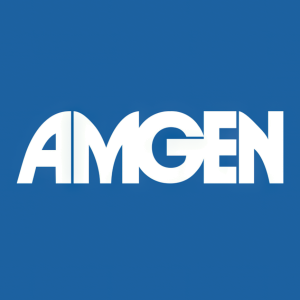AMGEN PRESENTS NEW RESEARCH ON OTEZLA® (APREMILAST) AT AAD 2024
SPROUT 52-Week Data Demonstrate Durable Response and Consistent Safety Profile of Oral Otezla in Children with Moderate to Severe Plaque Psoriasis
Late-Breaking Phase 3 Study of Otezla in Palmoplantar Pustulosis Achieves Primary and Secondary Endpoints at 16 Weeks
"These data reflect Amgen's commitment to exploring new ways to treat inflammatory skin disease," said Ponda Motsepe-Ditshego, vice president, Global Medical, at Amgen. "A decade after the launch of Otezla, we continue to study how this oral therapy can help improve care and reduce disease burden in underserved patient populations."
SPROUT Phase 3 Study
Results from SPROUT, a multicenter, randomized, placebo-controlled, double-blind study, demonstrated the efficacy and safety of Otezla in pediatric patients aged 6 to 17 years with moderate to severe plaque psoriasis inadequately controlled by or intolerant to topical therapy. Continued Otezla use resulted in sustained improvements in psoriasis severity and skin involvement in patients for up to one year. The safety profile was consistent with previous Otezla studies. These findings add to the published 16-week results.1
"For the first time, we have a full year of data on a potential oral treatment for children and adolescents with moderate to severe plaque psoriasis, who currently lack any approved oral treatment options," said Loretta Fiorillo, M.D., FRCPC, clinical professor of pediatrics, University of
All patients in the study received Otezla for a 36-week extended active treatment period following the 16-week randomized placebo-controlled treatment period, providing up to 52 weeks of data. There were 186 patients who completed the 36-week extension: 125 who continued to receive Otezla, and 61 patients switched from placebo to Otezla.
Study findings include:2
56.3% of patients who received Otezla through week 52 achieved static Physician Global Assessment (sPGA) response (score of ≥3), an investigator assessment of overall disease severity of plaque psoriasis, the study's primary endpoint.52.5% of patients who switched from placebo to Otezla achieved sPGA response at week 52.71.4% of patients who received Otezla through week 52 achieved Psoriasis Area and Severity Index (PASI)-75, an investigator assessment of disease severity and skin involvement, a secondary endpoint.75.4% of patients who switched from placebo to Otezla achieved PASI-75 at week 52.- Treatment-emergent adverse events (AEs) were consistent with the known safety profile of Otezla in adults. The most common AEs (>
10% ) throughout the study were nausea, diarrhea, abdominal pain, vomiting and headache.
Findings will be presented as an e-poster with an oral presentation on Saturday, March 9 at 4:50 p.m. PST.
Phase 3 Late-Breaking Palmoplantar Pustulosis Findings
Amgen also will present late-breaking findings from a Phase 3 study evaluating the efficacy and safety of Otezla in patients with moderate to severe palmoplantar pustulosis in
"Palmoplantar pustulosis can severely impact daily functioning due to its painful effects on the hands and feet, necessitating new therapeutic options for this impactful inflammatory skin condition," said Melinda Gooderham, M.D., FRCPC, dermatologist and clinical investigator at SKiN Centre for Dermatology and assistant professor, Queen's University,
The randomized, placebo-controlled, double-blind study included 176 patients who received Otezla (n=88) or placebo (n=88) for 16 weeks. All primary and secondary endpoints were met.
Study findings include:5
67.8% of patients who received Otezla achieved the primary endpoint of PPPASI 50 (>50% improvement in the Palmoplantar Pustulosis Area and Severity Index); this was a significantly greater response as compared to placebo (35.3% ; P<0.0001).- Statistically significant improvements in all secondary endpoints were observed with Otezla relative to placebo, including changes from baseline to week 16 in PPPASI, PPSI (Palmoplantar Pustulosis Severity Index), Patient Visual Analogue Scale of palmoplantar pruritus and pain/discomfort and DLQI (Dermatology Life Quality Index).
- Treatment-emergent AEs were consistent with the known safety profile of Otezla. The most common AEs (>
10% ) throughout the study were diarrhea, soft feces, headache and nausea.
Findings will be presented as a late-breaking oral presentation on Saturday, March 9 at 9:20 a.m. PST.
Additional Amgen data to be presented at AAD include:
Otezla Abstracts
- Long-term Impact of Apremilast on Cardiometabolic Parameters and the Relationship of Cardiometabolic Changes with Psoriasis Efficacy
Abstract #50668, E-Poster and Oral Presentation of Poster on Saturday, March 9 at 3:55 p.m. PST - Beyond Race-Ethnicity: Fitzpatrick Skin Type Analysis Highlights Unmet Needs and Differing Treatment Patterns in Psoriasis Among the Conventional Systemics Cohort of British Association of Dermatologists Biologic and Immunomodulators Register (BADBIR)
Abstract #51067, E-Poster and Oral Presentation of Poster on Saturday, March 9 at 4:15 p.m. PST - Apremilast Improves Clinical Outcomes and Pain in Patients with Oligoarticular Psoriatic Arthritis
Abstract #51246, E-Poster - Efficacy of Apremilast in Adults with Mild-to-Moderate Plaque Psoriasis with Scalp Involvement: Pooled Data from PROMINENT, ADVANCE, and EMBRACE Trials
Abstract #51480, E-Poster - Proportion of the US Psoriasis Population Impacted by Common Warnings for Moderate-to-Severe Plaque Psoriasis Treatment
Abstract #52846, E-Poster
Rocatinlimab (AMG 451/KHK4083) Abstract
- Rocatinlimab Significantly Improves Clinical Responses in Patients with Moderate-to-Severe Atopic Dermatitis by Week 2 in a Randomized Double-Blind Placebo-Controlled Phase 2b Study
Abstract #50233, E-Poster
About Psoriasis
Psoriasis is a chronic disease where skin cells build up quickly, typically causing red or discolored, scaly, and itchy patches on the skin.6 Approximately 125 million people worldwide have psoriasis, including around 14 million people in
About Otezla® (apremilast)
Otezla® (apremilast) is an oral small-molecule inhibitor of phosphodiesterase 4 (PDE4) specific for cyclic adenosine monophosphate (cAMP). PDE4 inhibition results in increased intracellular cAMP levels, which is thought to indirectly modulate the production of inflammatory mediators. The specific mechanism(s) by which Otezla exerts its therapeutic action in patients is not well defined.
Since its initial FDA approval in 2014, Otezla has been prescribed to more than 920,000 patients worldwide.10
Otezla® (apremilast)
INDICATIONS
Otezla® (apremilast) is indicated for the treatment of adult patients with plaque psoriasis who are candidates for phototherapy or systemic therapy.
Otezla is indicated for the treatment of adult patients with active psoriatic arthritis.
Otezla is indicated for the treatment of adult patients with oral ulcers associated with Behçet's Disease.
Otezla® (apremilast)
Contraindications
- Otezla® is contraindicated in patients with a known hypersensitivity to apremilast or to any of the excipients in the formulation
Warnings and Precautions
- Hypersensitivity: Hypersensitivity reactions, including angioedema and anaphylaxis, have been reported during postmarketing surveillance. If signs or symptoms of serious hypersensitivity reactions occur, discontinue Otezla and institute appropriate therapy
- Diarrhea, Nausea, and Vomiting: Cases of severe diarrhea, nausea, and vomiting were associated with the use of Otezla. Most events occurred within the first few weeks of treatment. In some cases, patients were hospitalized. Patients 65 years of age or older and patients taking medications that can lead to volume depletion or hypotension may be at a higher risk of complications from severe diarrhea, nausea, or vomiting. Monitor patients who are more susceptible to complications of diarrhea or vomiting; advise patients to contact their healthcare provider. Consider Otezla dose reduction or suspension if patients develop severe diarrhea, nausea, or vomiting
- Depression: Carefully weigh the risks and benefits of treatment with Otezla for patients with a history of depression and/or suicidal thoughts/behavior, or in patients who develop such symptoms while on Otezla. Patients, caregivers, and families should be advised of the need to be alert for the emergence or worsening of depression, suicidal thoughts or other mood changes, and they should contact their healthcare provider if such changes occur
- Plaque Psoriasis: Treatment with Otezla is associated with an increase in depression. During clinical trials in patients with moderate to severe plaque psoriasis,
1.3% (12/920) of patients reported depression compared to0.4% (2/506) on placebo. Depression was reported as serious in0.1% (1/1308) of patients exposed to Otezla, compared to none in placebo-treated patients (0/506). Suicidal behavior was observed in0.1% (1/1308) of patients on Otezla, compared to0.2% (1/506) on placebo. One patient treated with Otezla attempted suicide; one patient on placebo committed suicide - Psoriatic Arthritis: Treatment with Otezla is associated with an increase in depression. During clinical trials,
1.0% (10/998) reported depression or depressed mood compared to0.8% (4/495) treated with placebo. Suicidal ideation and behavior was observed in0.2% (3/1441) of patients on Otezla, compared to none in placebo-treated patients. Depression was reported as serious in0.2% (3/1441) of patients exposed to Otezla, compared to none in placebo-treated patients (0/495). Two patients who received placebo committed suicide compared to none on Otezla - Behçet's Disease: Treatment with Otezla is associated with an increase in depression. During the clinical trial,
1% (1/104) reported depression or depressed mood compared to1% (1/103) treated with placebo. No instances of suicidal ideation or behavior were reported in patients treated with Otezla or treated with placebo
- Plaque Psoriasis: Treatment with Otezla is associated with an increase in depression. During clinical trials in patients with moderate to severe plaque psoriasis,
- Weight Decrease: Monitor body weight regularly; evaluate unexplained or clinically significant weight loss, and consider discontinuation of Otezla
- Plaque Psoriasis: Body weight loss of 5
-10% occurred in12% (96/784) of patients with moderate to severe plaque psoriasis treated with Otezla and in5% (19/382) of patients treated with placebo. Body weight loss of ≥10% occurred in2% (16/784) of patients treated with Otezla compared to1% (3/382) of patients treated with placebo - Psoriatic Arthritis: Body weight loss of 5
-10% was reported in10% (49/497) of patients taking Otezla and in3.3% (16/495) of patients taking placebo - Behçet's Disease: Body weight loss of >
5% was reported in4.9% (5/103) of patients taking Otezla and in3.9% (4/102) of patients taking placebo
- Plaque Psoriasis: Body weight loss of 5
- Drug Interactions: Apremilast exposure was decreased when Otezla was co-administered with rifampin, a strong
CYP450 enzyme inducer; loss of Otezla efficacy may occur. Concomitant use of Otezla withCYP450 enzyme inducers (e.g., rifampin, phenobarbital, carbamazepine, phenytoin) is not recommended
Adverse Reactions
- Plaque Psoriasis: The most common adverse reactions (≥
5% ) are diarrhea, nausea, upper respiratory tract infection, and headache, including tension headache. Overall, the safety profile of Otezla in patients with mild to moderate plaque psoriasis was consistent with the safety profile previously established in adult patients with moderate to severe plaque psoriasis - Psoriatic Arthritis: The most common adverse reactions (≥
5% ) are diarrhea, nausea, and headache - Behçet's Disease: The most common adverse reactions (≥
10% ) are diarrhea, nausea, headache, and upper respiratory tract infection
Use in Specific Populations
- Otezla has not been studied in pregnant women. Advise pregnant women of the potential risk of fetal loss.
Please click here for Otezla® Full Prescribing Information.
About Atopic Dermatitis
Atopic dermatitis is a chronic inflammatory disease that causes excessively dry, itchy skin that can be painful. Repeated scratching can cause the skin to thicken, harden or become vulnerable to infection. Atopic dermatitis is the most common form of eczema – affecting 1
About rocatinlimab
Rocatinlimab (AMG 451/KHK4083), an investigational product, is a potential first-in-class anti-OX40 monoclonal antibody that is being studied for its ability to inhibit and reduce the number of OX40+ pathogenic T cells responsible for driving systemic and local AD inflammatory responses.
It has been reported that effector T cells expressing OX40 are present in the lesions of patients with atopic dermatitis and are critical in the disease pathophysiology. The initial antibody was discovered in collaboration between Kyowa Kirin US Research and La Jolla Institute for Immunology.
Amgen and Kyowa Kirin Collaboration
On June 1, 2021, Kyowa Kirin and Amgen entered into an agreement to jointly develop and commercialize rocatinlimab. Under the terms of the agreement, Amgen will lead the development, manufacturing, and commercialization for KHK4083/AMG 451 for all markets globally, except
About Amgen
Amgen is committed to unlocking the potential of biology for patients suffering from serious illnesses by discovering, developing, manufacturing and delivering innovative human therapeutics. This approach begins by using tools like advanced human genetics to unravel the complexities of disease and understand the fundamentals of human biology.
Amgen focuses on areas of high unmet medical need and leverages its expertise to strive for solutions that improve health outcomes and dramatically improve people's lives. A biotechnology pioneer since 1980, Amgen has grown to be one of the world's leading independent biotechnology companies, has reached millions of patients around the world and is developing a pipeline of medicines with breakaway potential.
Amgen is one of the 30 companies that comprise the Dow Jones Industrial Average and is also part of the Nasdaq-100 index. In 2023, Amgen was named one of "America's Greatest Workplaces" by Newsweek, one of "America's Climate Leaders" by
For more information, visit Amgen.com and follow us on X (formerly known as Twitter), LinkedIn, Instagram, TikTok, YouTube and Threads.
Amgen Forward-Looking Statements
This news release contains forward-looking statements that are based on the current expectations and beliefs of Amgen. All statements, other than statements of historical fact, are statements that could be deemed forward-looking statements, including any statements on the outcome, benefits and synergies of collaborations, or potential collaborations, with any other company (including BeiGene, Ltd. or Kyowa Kirin Co., Ltd.), the performance of Otezla® (apremilast) (including anticipated Otezla sales growth and the timing of non-GAAP EPS accretion), our acquisitions of Teneobio, Inc., ChemoCentryx, Inc., or Horizon Therapeutics plc (including the prospective performance and outlook of Horizon's business, performance and opportunities, any potential strategic benefits, synergies or opportunities expected as a result of such acquisition, and any projected impacts from the Horizon acquisition on our acquisition-related expenses going forward), as well as estimates of revenues, operating margins, capital expenditures, cash, other financial metrics, expected legal, arbitration, political, regulatory or clinical results or practices, customer and prescriber patterns or practices, reimbursement activities and outcomes, effects of pandemics or other widespread health problems on our business, outcomes, progress, and other such estimates and results. Forward-looking statements involve significant risks and uncertainties, including those discussed below and more fully described in the Securities and Exchange Commission reports filed by Amgen, including our most recent annual report on Form 10-K and any subsequent periodic reports on Form 10-Q and current reports on Form 8-K. Unless otherwise noted, Amgen is providing this information as of the date of this news release and does not undertake any obligation to update any forward-looking statements contained in this document as a result of new information, future events or otherwise.
No forward-looking statement can be guaranteed and actual results may differ materially from those we project. Discovery or identification of new product candidates or development of new indications for existing products cannot be guaranteed and movement from concept to product is uncertain; consequently, there can be no guarantee that any particular product candidate or development of a new indication for an existing product will be successful and become a commercial product. Further, preclinical results do not guarantee safe and effective performance of product candidates in humans. The complexity of the human body cannot be perfectly, or sometimes, even adequately modeled by computer or cell culture systems or animal models. The length of time that it takes for us to complete clinical trials and obtain regulatory approval for product marketing has in the past varied and we expect similar variability in the future. Even when clinical trials are successful, regulatory authorities may question the sufficiency for approval of the trial endpoints we have selected. We develop product candidates internally and through licensing collaborations, partnerships and joint ventures. Product candidates that are derived from relationships may be subject to disputes between the parties or may prove to be not as effective or as safe as we may have believed at the time of entering into such relationship. Also, we or others could identify safety, side effects or manufacturing problems with our products, including our devices, after they are on the market.
Our results may be affected by our ability to successfully market both new and existing products domestically and internationally, clinical and regulatory developments involving current and future products, sales growth of recently launched products, competition from other products including biosimilars, difficulties or delays in manufacturing our products and global economic conditions. In addition, sales of our products are affected by pricing pressure, political and public scrutiny and reimbursement policies imposed by third-party payers, including governments, private insurance plans and managed care providers and may be affected by regulatory, clinical and guideline developments and domestic and international trends toward managed care and healthcare cost containment. Furthermore, our research, testing, pricing, marketing and other operations are subject to extensive regulation by domestic and foreign government regulatory authorities. Our business may be impacted by government investigations, litigation and product liability claims. In addition, our business may be impacted by the adoption of new tax legislation or exposure to additional tax liabilities. If we fail to meet the compliance obligations in the corporate integrity agreement between us and the
The scientific information discussed in this news release related to our product candidates is preliminary and investigative. Such product candidates are not approved by the
CONTACT: Amgen,
Kate Meyer, 872-867-0754 (media)
Jessica Akopyan, 805-440-5721 (media)
Justin Claeys, 805-313-9775 (investors)
References
1Fiorillo L, Becker E, de Lucas R, Belloni-Fortina A, Armesto S, Maes P, Oberoi R, Paris M, Zhang W, Zhang Z, & Arkin L. Efficacy and safety results of apremilast in pediatric patients with moderate to severe plaque psoriasis: 16-week results from SPROUT, a phase 3, randomized, controlled study. SKIN, 2023;7(2):s109; https://doi.org/10.25251/skin.7.supp.109.
2Fiorillo L, et al. Efficacy and Safety of Apremilast in Pediatric Patients With Moderate to Severe Plaque Psoriasis: 52-Week Results From the SPROUT Randomized Controlled Trial. AAD Annual Meeting, March 2024.
3Brunasso AMG and Massone C. Recent advances in palmoplantar pustulosis. Faculty Reviews 2021 10:(62) https://doi.org/10.12703/r/10-62.
4Chung J, Callis Duffin K, Takeshita J, Shin DB, Krueger GG, Robertson AD, et al. Palmoplantar psoriasis is associated with greater impairment of health-related quality of life compared with moderate to severe plaque psoriasis. J Am Acad Dermatol. 2014 Oct; 71(4):623-32. doi: 10.1016/j.jaad.2014.04.063.
5 Terui T, et all. Efficacy and Safety of Apremilast for the Treatment of Japanese Patients With Palmoplantar Pustulosis (PPP): 16-Week Results From a Phase 3, Randomized, Placebo-Controlled Study. AAD Annual Meeting, March 2024.
6National Psoriasis Foundation. About Psoriasis. Available at: https://www.psoriasis.org/about-psoriasis. Accessed January 30, 2024.
7National Psoriasis Foundation. Statistics. Available at: https://www.psoriasis.org/content/statistics. Accessed January 30, 2024.
8Ortonne JP, Prinz JC. Alefacept: a novel and selective biologic agent for the treatment of chronic plaque psoriasis. Eur J Dermatol. 2004;14(1):41–45.
9National Psoriasis Foundation. Plaque Psoriasis. Available at: https://www.psoriasis.org/about-psoriasis/types/plaque. Accessed January 30, 2024.
10Amgen Data on File. November 2023.
![]() View original content to download multimedia:https://www.prnewswire.com/news-releases/amgen-presents-new-research-on-otezla-apremilast-at-aad-2024-302084594.html
View original content to download multimedia:https://www.prnewswire.com/news-releases/amgen-presents-new-research-on-otezla-apremilast-at-aad-2024-302084594.html
SOURCE Amgen








